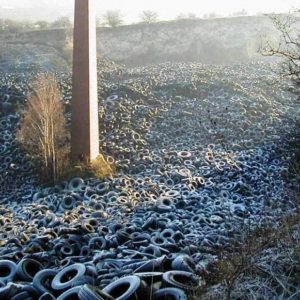An extract from an article published in the Monthly Review
Today the moment of truth looms large. We currently reside within a “Great Climacteric”—first identified in the 1980s by geographers Ian Burton and Robert Kates—a long period of crisis and transition in which human society will either generate a stable relation to the Earth System or will experience a civilizational collapse, as part of a great die-down of life on earth, or sixth extinction.47
The future of civilization, viewed in the widest sense, demands that humanity collectively engage in an ecological and social revolution, radically transforming productive relations, in order to forge a path toward sustainable human development. This entails regulating the social metabolism between humanity and the earth, ensuring that it operates within the planetary boundaries or the universal metabolism of nature. Viewed in these terms, there is an objective historical necessity for what we are calling the prospective second geological age of the Anthropocene: the Communian.
In a remarkable intellectual development in the closing decade of the Soviet Union, leading Soviet geologists, climatologists, geographers, philosophers, cultural theorists, and others came together to describe the global ecological crisis as a civilizational crisis requiring a whole new ecological civilization, rooted in historical-materialist principles.48
This viewpoint was immediately taken up by Chinese environmentalists and has been further developed and applied in socialist China today.49 If historic humanity is to survive, today’s capitalist civilization devoted to the single-minded pursuit of profits as its own end, resulting in an anthropogenic rift in the Earth system, must necessarily give way to an ecological civilization rooted in communal use values. This is the real meaning of today’s widely referred to planetary “existential crisis.”50

In this Great Climacteric, it is not only essential to bring to an end the destructive trends that are ruining the earth as a safe home for humanity, but also, beyond that, it is vital to engineer an actual “reversal” of these trends.51 For example, carbon concentration in the atmosphere is nearing 420 parts per million (ppm), peaking in May 2021 at 419 ppm, and is headed rapidly toward 450 ppm, which would break the planetary carbon budget. Science tells us that it will be necessary, if global climate catastrophe is to be avoided, to return to 350 ppm and stabilize the atmospheric carbon dioxide at that level.52 This in itself can be seen as standing for the necessity of a new ecological civilization and the anthropogenic generation of a new Communian Age within the Anthropocene. This ecorevolutionary transition obviously cannot occur through the unbridled pursuit of acquisitive ends, based on the naive belief that this will automatically lead to the greater good—sometimes called “Adam’s Fallacy,” after the classical economist Adam Smith.53 Rather, the necessary reversal of existing trends and the stabilization of the human relation to the earth in accord with a path of sustainable human development can only occur through social, economic, and ecological planning, grounded in a new system of social metabolic reproduction.54
To create such an ecological civilization in the contemporary world would require a radical (in the sense of root) impetus emanating from the bottom of society—outside the realm of the vested interests.55 This overturning of the dominant social relations of production requires a long revolution emanating from the mass movement of humanity. Today’s realities are therefore giving rise to a nascent environmental proletariat, defined by its struggle against oppressive environmental as well as economic conditions, and leading to a revolutionary path of sustainable human development. Broad environmental-proletarian movements in this sense are already evident in our time—from the Landless Workers’ Movement (MST) in Brazil, the international peasants’ movement La Vía Campesina, the Bolivarian communes in Venezuela, and the farmers’ movement in India, to the struggles for a People’s Green New Deal, environmental justice, and a just transition in the developed countries, to the Red Deal of the North American First Nations.56
The advent of the Communian, (the geological age of the Anthropocene to succeed the Capitalinian), barring an end-Anthropocene extinction event, necessitates an ecological, social, and cultural revolution; one aimed at the creation of collective relations within humanity as a whole as a basis for a wider community with the earth. It thus requires a society geared to both substantive equality and ecological sustainability.
The conditions for this new relation to the earth were eloquently expressed by Marx, writing in the nineteenth century, in what is perhaps the most radical conception of sustainability ever developed:
“From the standpoint of a higher socio-economic formation [socialism], the private property of particular individuals in the earth will appear just as absurd as the private property of one man in other men [slavery]. Even an entire society, a nation, or all simultaneously existing societies taken together, are not the owners of the earth. They are simply its possessors, its beneficiaries, and have to bequeath it in an improved state to succeeding generations, as good heads of the household.”57
In the twenty-first century, it will be essential for the great mass of humanity, the “wretched of the earth,” to reaffirm, at a higher level, its communal relations with the earth: the dawn of another age.60
______________________________________________________________________
Read the full article: ‘The Capitalinian: The First Geological Age of the Anthropocene’, Monthly Review, Volume 73, Number 4 (September 2021)